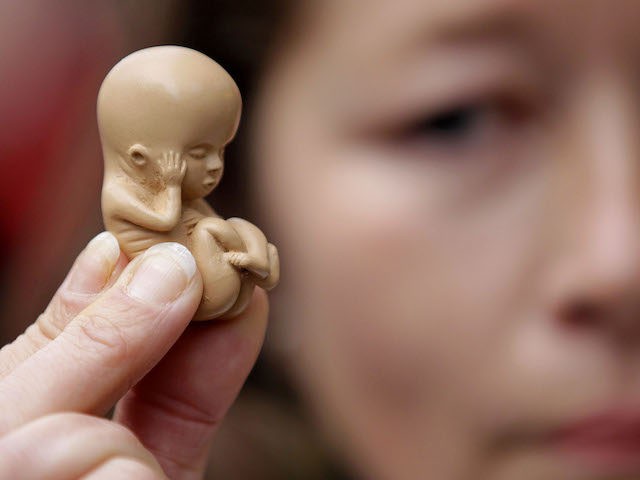The prefect of the Vatican’s doctrinal office (CDF) has urged U.S. bishops to insist on Catholic politicians’ “grave and clear obligation to oppose any law that attacks human life.”
The Vatican prefect, Jesuit Cardinal Luis Ladaria Ferrer, wrote a letter dated May 7 to the president of the U.S. Bishops’ Conference (USCCB), Archbishop José Gomez, noting the moral obligation of Catholic politicians was clearly laid out in a 2002 document from the CDF.
Regarding laws permitting abortion or euthanasia, that text, titled “The Participation of Catholics in Political Life,” declared that for Catholic politicians “it is impossible to promote such laws or to vote for them.”
Cardinal Ladaria was responding to an earlier letter from Gomez, informing the Vatican of the U.S. bishops’ plans to draft a document on worthiness to receive Holy Communion, especially regarding public figures who actively promote evil laws against human life.
In his letter, Ladaria states that the bishops should unite as a conference to insist on the duty of Catholic politicians to oppose all legislation that undermines the right to life.
Ladaria also addresses the matter of the worthiness to receive Holy Communion and circumstances in which Communion should be denied, a topic not dealt with in the CDF text from 2002.
He states that a letter written by then-Cardinal Joseph Ratzinger in 2004 on this question offers “general principles on the worthy reception of Holy Communion” and can be useful “to assist local ordinaries in the United States in their dealings with Catholic pro-choice politicians.”
These principles “may be of assistance in the preparation of the draft of your document,” Ladaria notes.
In that 2004 text, Ratzinger, who was then prefect of the CDF, declared that not all moral issues “have the same moral weight as abortion and euthanasia,” which are grave evils that allow for no legitimate diversity of opinion.
The minister of Holy Communion “may find himself in the situation where he must refuse to distribute Holy Communion to someone,” Ratzinger wrote, “such as in cases of a declared excommunication, a declared interdict, or an obstinate persistence in manifest grave sin.” He went on to write:
Regarding the grave sin of abortion or euthanasia, when a person’s formal cooperation becomes manifest (understood, in the case of a Catholic politician, as his consistently campaigning and voting for permissive abortion and euthanasia laws), his Pastor should meet with him, instructing him about the Church’s teaching, informing him that he is not to present himself for Holy Communion until he brings to an end the objective situation of sin, and warning him that he will otherwise be denied the Eucharist.
“When these precautionary measures have not had their effect or in which they were not possible, and the person in question, with obstinate persistence, still presents himself to receive the Holy Eucharist, the minister of Holy Communion must refuse to distribute it,” he said.
In his letter to Archbishop Gomez, Cardinal Ladaria notes that formulation of a common policy in this area “requires that dialogue occurs in two stages: first among the bishops themselves, and then between bishops and Catholic pro-choice politicians within their jurisdictions.”
“The bishops should affirm as a Conference that ‘those who are directly involved in lawmaking bodies have a grave and clear obligation to oppose any law that attacks human life,’” he writes.
Ladaria also states that the debate on Eucharistic coherence among the bishops “would best be framed within the broad context of worthiness for the reception of holy Communion on the part of all the faithful, rather than only one category of Catholics.”
It would be “misleading” if the bishops’ statement were to give the impression that abortion and euthanasia are “the only grave matters of Catholic moral and social teaching that demand the fullest level of accountability on the part of Catholics.”
The cardinal also warns that, given the “contentious nature” of the debate, there is a risk that the discussion could “become a source of discord rather than unity within the episcopate and the larger church in the United States.”

COMMENTS
Please let us know if you're having issues with commenting.